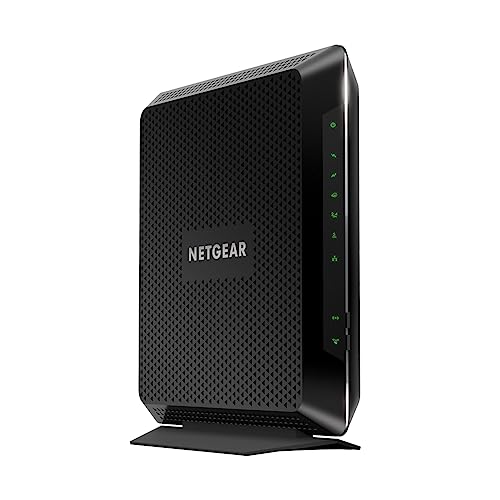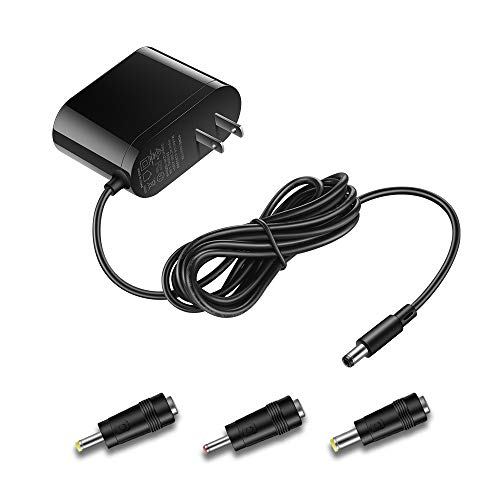Cryptocurrencies have become a hot topic in the world of finance, with their popularity soaring in recent years. From Bitcoin to Ethereum and beyond, these digital assets have captured the imagination of investors, technologists, and everyday consumers alike.
However, for newcomers to the crypto space, the myriad of terms and concepts can be overwhelming.
This beginner’s guide aims to provide a clear and concise overview of the basics of cryptocurrencies, helping you navigate this exciting and evolving landscape with confidence.
Cryptocurrency Fundamentals

- Compatible with major cable internet providers including Xfinity, Spectrum, Cox and more. NOT compatible...
- [Compatibility] 12V Power Supply Adapter Compatible with Netgear, Linksys, Asus,Motorola, Motorola/Arris...
At its core, a cryptocurrency is a digital or virtual currency that uses cryptography for security and operates on decentralized networks based on blockchain technology. The concept of cryptocurrencies traces back to the creation of Bitcoin in 2009 by an unknown person or group of people using the pseudonym Satoshi Nakamoto.
Bitcoin was the first decentralized cryptocurrency, and it laid the foundation for the development of thousands of other cryptocurrencies known as altcoins.
Blockchain technology is the underlying framework that powers cryptocurrencies. It is a distributed ledger that records all transactions across a network of computers, ensuring transparency, security, and immutability. Each block in the blockchain contains a cryptographic hash of the previous block, creating a chain of blocks that cannot be altered without consensus from the network participants.
Decentralized finance (DeFi) is another crucial aspect of the cryptocurrency ecosystem. DeFi refers to a range of financial services and applications built on blockchain networks, including lending, borrowing, trading, and asset management.
Unlike traditional finance, which relies on intermediaries such as banks and brokers, DeFi operates in a decentralized manner, enabling peer-to-peer transactions and reducing the need for trust in third parties.
As you delve deeper into the world of cryptocurrencies, understanding these fundamental concepts will provide you with a solid foundation for exploring the various terms and concepts associated with digital assets.
Whether you’re interested in investing, trading, or simply learning more about the future of finance, mastering the basics of cryptocurrencies is an essential first step.
Common Crypto Terms and Concepts
As you embark on your journey into the world of cryptocurrencies, familiarizing yourself with common terms and concepts will empower you to navigate the landscape with confidence.
Here are some essential terms and concepts every beginner should know:
- Wallet: A cryptocurrency wallet is a digital tool used to store, send, and receive cryptocurrencies. Wallets come in various forms, including software wallets (desktop, mobile, or web-based), hardware wallets (physical devices), and paper wallets (printed or written records of cryptocurrency keys).
- Private Key: A private key is a cryptographic code that allows you to access and manage your cryptocurrencies. It is essentially your password for accessing your digital assets. It’s crucial to keep your private key secure and never share it with anyone.
- Public Key: A public key is derived from your private key and serves as your wallet address. It is used to receive cryptocurrencies from other users. You can freely share your public key with others to receive payments.
- Blockchain: A blockchain is a decentralized and distributed ledger that records all transactions across a network of computers. Each block in the blockchain contains a list of transactions, and each block is cryptographically linked to the previous one, forming a chain. Blockchains ensure transparency, security, and immutability of data.
- Cryptocurrency Exchange: A cryptocurrency exchange is a platform where you can buy, sell, and trade cryptocurrencies. Exchanges come in various types, including centralized exchanges (CEXs) and decentralized exchanges (DEXs). Popular cryptocurrency exchanges include Coinbase, Binance, and Kraken.
- Altcoin: Altcoin is a term used to describe any cryptocurrency other than Bitcoin. There are thousands of altcoins available, each with its unique features, use cases, and value propositions. Some popular altcoins include Ethereum, Ripple (XRP), Litecoin, and Cardano.
- Token: In the context of cryptocurrencies, a token is a digital asset that represents a particular asset or utility on a blockchain network. Tokens can represent anything from a digital currency to a stake in a decentralized application (dApp). Ethereum-based tokens, known as ERC-20 tokens, are among the most common types of tokens.
- Initial Coin Offering (ICO): An initial coin offering (ICO) is a fundraising method used by cryptocurrency projects to raise capital. During an ICO, investors can purchase tokens issued by the project in exchange for cryptocurrencies such as Bitcoin or Ethereum. ICOs are similar to initial public offerings (IPOs) in traditional finance but are often unregulated and high-risk.
- Decentralized Finance (DeFi): Decentralized finance (DeFi) refers to a range of financial services and applications built on blockchain networks. DeFi platforms enable peer-to-peer transactions, lending, borrowing, trading, and asset management without the need for traditional intermediaries such as banks or brokers. DeFi has gained significant traction in recent years, offering innovative solutions and opportunities for financial inclusion.
- Smart Contract: A smart contract is a self-executing contract with the terms of the agreement directly written into code. Smart contracts run on blockchain networks and automatically enforce the terms of the contract when certain conditions are met. They enable trustless and transparent transactions, eliminating the need for intermediaries.
- Mining: Mining is the process of validating and adding new transactions to a blockchain network. Miners use powerful computers to solve complex mathematical puzzles, and in return, they are rewarded with newly minted cryptocurrencies and transaction fees. Mining is essential for securing and maintaining the integrity of blockchain networks.
- Fork: A fork occurs when a blockchain network splits into two separate chains due to a change in the network’s protocol or consensus rules.
By familiarizing yourself with these common terms and concepts, you’ll be better equipped to navigate the world of cryptocurrencies and make informed decisions about your investments and participation in the digital economy.
As you continue your journey, don’t hesitate to explore additional resources and deepen your understanding of this exciting and dynamic field.
Crypto Tips for Beginners
- Educate Yourself: Before diving into cryptocurrencies, take the time to educate yourself about the basics. Read articles, watch videos, and explore online resources to understand how cryptocurrencies work, their potential benefits and risks, and the best practices for storing and managing your digital assets.
- Start Small: As a beginner, it’s essential to start with a small investment and gradually expand your portfolio as you gain experience and confidence in the market. Avoid investing more money than you can afford to lose, and don’t be swayed by FOMO (fear of missing out) or hype-driven investments.
- Diversify Your Portfolio: Diversification is key to reducing risk and maximizing potential returns in the cryptocurrency market. Instead of putting all your funds into one cryptocurrency, consider spreading your investment across multiple assets to mitigate risk and capitalize on different market opportunities.
- Use Secure Wallets: Security is paramount when it comes to storing and managing your cryptocurrencies. Choose reputable wallets with robust security features, such as hardware wallets or reputable software wallets with multi-factor authentication and encryption. Avoid storing large amounts of cryptocurrency on exchanges, as they are more susceptible to hacking and theft.
- Stay Informed: Stay up-to-date with the latest news, developments, and trends in the cryptocurrency space. Follow reputable cryptocurrency news websites, forums, and social media channels to stay informed about market updates, regulatory changes, and emerging opportunities.
- Practice Caution: Be cautious of scams, phishing attempts, and fraudulent schemes prevalent in the cryptocurrency industry. Exercise due diligence when researching new projects and investment opportunities, and never share your private keys or sensitive information with anyone.
- Hodl and DCA: Hodl (a misspelling of “hold”) is a term used in the cryptocurrency community to encourage long-term investment strategies. Instead of trying to time the market, hodlers hold onto their investments through market fluctuations with the belief that the value will increase over time. Additionally, consider dollar-cost averaging (DCA) by regularly investing a fixed amount of money into cryptocurrencies regardless of market conditions, allowing you to average out the purchase price over time.
- Seek Advice: Don’t hesitate to seek advice from experienced investors, cryptocurrency enthusiasts, and financial professionals. Join online communities, participate in discussions, and ask questions to learn from others’ experiences and perspectives.
By following these tips, you can navigate the world of cryptocurrencies with greater confidence and mitigate potential risks along the way.
Conclusion
Delving into the world of cryptocurrencies can be both exciting and daunting for beginners. However, armed with the right knowledge, resources, and strategies, anyone can embark on this journey with confidence and success.
In this beginner’s guide, we’ve covered the fundamentals of cryptocurrencies, including what they are, how they work, and essential crypto terms and concepts every newcomer should know. We’ve also provided valuable crypto tips for beginners to help you navigate the cryptocurrency landscape, including education, risk management, security practices, and investment strategies.
As you begin your journey into cryptocurrencies, remember that learning and adaptation are essential. Stay curious, stay informed, and continue to explore new opportunities and innovations in this rapidly evolving field.
With patience, diligence, and a willingness to learn, you can unlock the full potential of cryptocurrencies and participate in the digital economy of the future.





